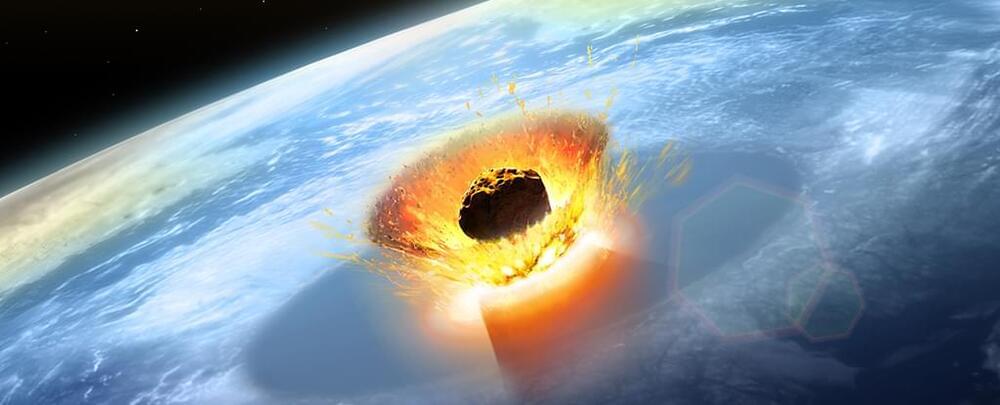The probe “performed as predicted” during the first of seven close approaches to the sun on its way to Apophis, NASA said.



Here’s my latest Opinion piece just out for Newsweek. Check it out! Lifeboat Foundation mentioned.
We need to remember that universal distress we all had when the world started to shut down in March 2020: when not enough ventilators and hospital beds could be found; when food shelves and supplies were scarce; when no COVID-19 vaccines existed. We need to remember because COVID is just one of many different existential risks that can appear out of nowhere, and halt our lives as we know it.
Naturally, I’m glad that the world has carried on with its head high after the pandemic, but I’m also worried that more people didn’t take to heart a longer-term philosophical view that human and earthly life is highly tentative. The best, most practical way to protect ourselves from more existential risks is to try to protect ourselves ahead of time.
That means creating vaccines for diseases even when no dire need is imminent. That means trying to continue to denuclearize the military regardless of social conflicts. That means granting astronomers billions of dollars to scan the skies for planet-killer asteroids. That means spending time to build safeguards into AI, and keeping it far from military munitions.
If we don’t take these steps now, either via government or private action, it could be far too late when a global threat emerges. We must treat existential risk as the threat it is: a human species and planet killer—the potential end of everything we know.


When the Chicxulub impactor, a six-mile-wide asteroid, struck Earth 66 million years ago, the dinosaurs had no warning.
If an asteroid that size hit Earth today, a shock wave two million times more powerful than a hydrogen bomb would flatten forests and trigger tsunamis. A seismic pulse equal to a magnitude 10 earthquake would crumble cities.
And long after the impact, a cloud of hot dust, ash, and steam would blot out the sun, plunging the Earth into freezing cold.

J. Robert Oppenheimer’s grandson is among the star-studded signatories of a new open letter about the dangers artificial intelligence poses to the planet.
The letter, which was issued by the Nelson Mandela-founded group The Elders in conjunction with the Future of Life Institute, calls on global decisionmakers to “show long-view leadership on existential threats,” including “ungoverned AI” and nuclear weapons.
Charles Oppenheimer, who founded the Oppenheimer Project to continue his grandfather’s mission of tempering scientific progress with “international cooperation and unity,” was joined by hundreds of others, including British billionaire Richard Branson, AI pioneer Geoffrey Hinton, writer and Carl Sagan widow Ann Druyan, and musician Peter Gabriel. In it, they warn that the world “is in grave danger” as we face down the perils of AI.
The aliens haven’t contacted us because they have uploaded themselves into digital information where they live forever anf create simulated universes that they live in or they upload themselves into femto tech level computational substrates and they could surround us.
Is Earth impossible? An exploration of the impossible earth hypothesis and its implications on science and existence.
My Patreon Page:
/ johnmichaelgodier.
My Event Horizon Channel:
A halloween eve exploration of two of the spookiest solutions to the Fermi Paradox. The Dark Forest Hypothesis and the Berserker Hypothesis.
My Patreon Page:
/ johnmichaelgodier.
My Event Horizon Channel:
/ eventhorizonshow.
Music.

Jenniskens’ collaborators at the Museum für Naturkunde officially announced that the first examinations of one of these pieces with an electron beam microprobe prove the typical mineralogy and chemical composition of an achondrite of the aubrite type.
The official classification now aligns with what many suspected from merely looking at the images of the strange meteorites that fell near Berlin on January 21, 2024. They belong to a rare group called “aubrites.”
“They were devilishly difficult to find because, from a distance, they look like other rocks on Earth,” said SETI Institute meteor astronomer Dr. Peter Jenniskens. “Close up, not so much.”

More deathism from Mr Tyson. Really I’m a big fan but I dislike this sort of thinking. I commented on the vid.
What if we could live forever? Neil deGrasse Tyson takes us through life and death: if we could live forever what would life really mean? We explore why fresh flowers have meaning and why dogs make every day count. Learn about the Cretaceous-Tertiary Event, The Permian-Triassic Extinction, The Holocene Epoc, and how Earth is one killing machine.
Get the NEW StarTalk book, ‘To Infinity and Beyond: A Journey of Cosmic Discovery’ on Amazon: https://amzn.to/3PL0NFn.
Support us on Patreon: / startalkradio.
FOLLOW or SUBSCRIBE to StarTalk: